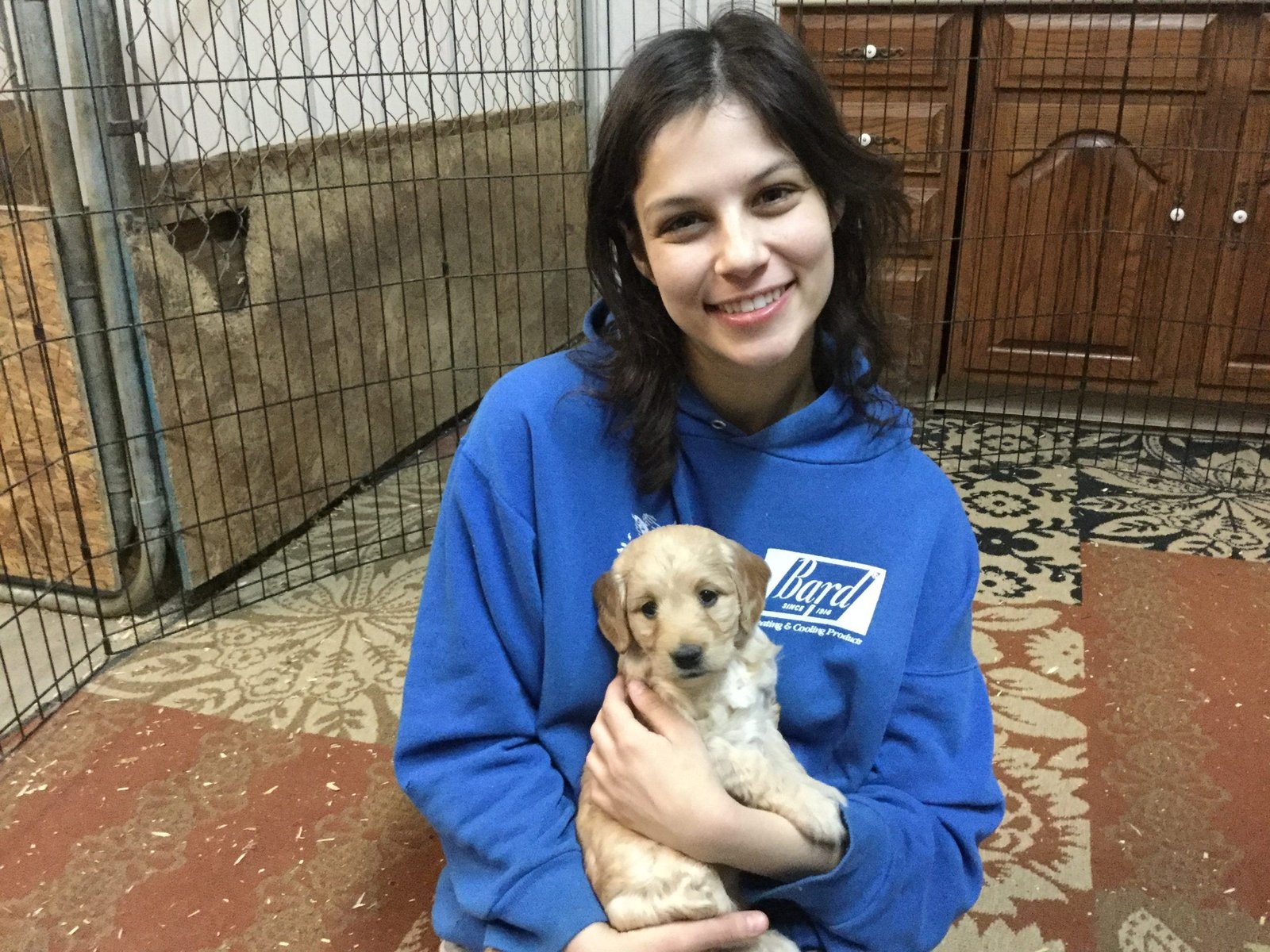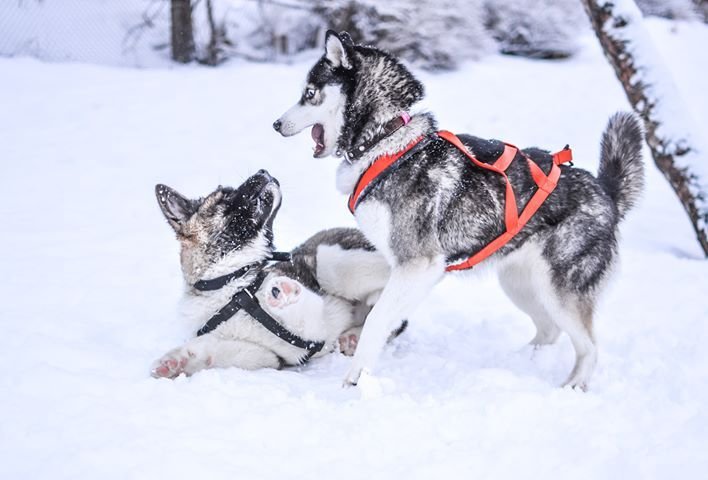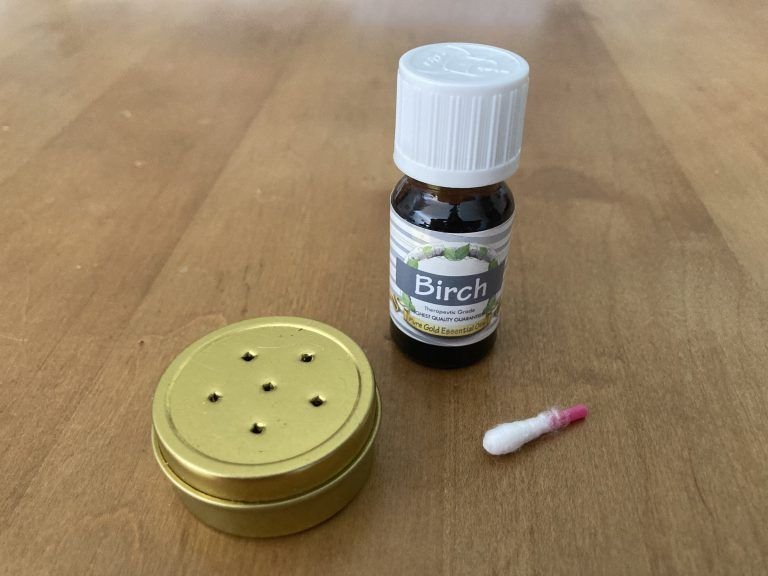One of the first daunting tasks for any new puppy owner is housetraining. Plenty of people want a cute puppy running around their house, but no one wants a puppy squatting to pee on their living room rug. New puppy owners often ask me questions about housetraining. What is the best way to housetrain my puppy? Should I use pee pads? How do I limit the number of accidents? Should I rub my puppy’s nose in accidents? The last one I’ll answer now: no, you should never rub a puppy’s nose in accidents. This blog post will tell you why, and it will also answer all the other questions I’ve mentioned here. To summarize my opinions on housetraining, the most important elements are positive reinforcement and consistent supervision.
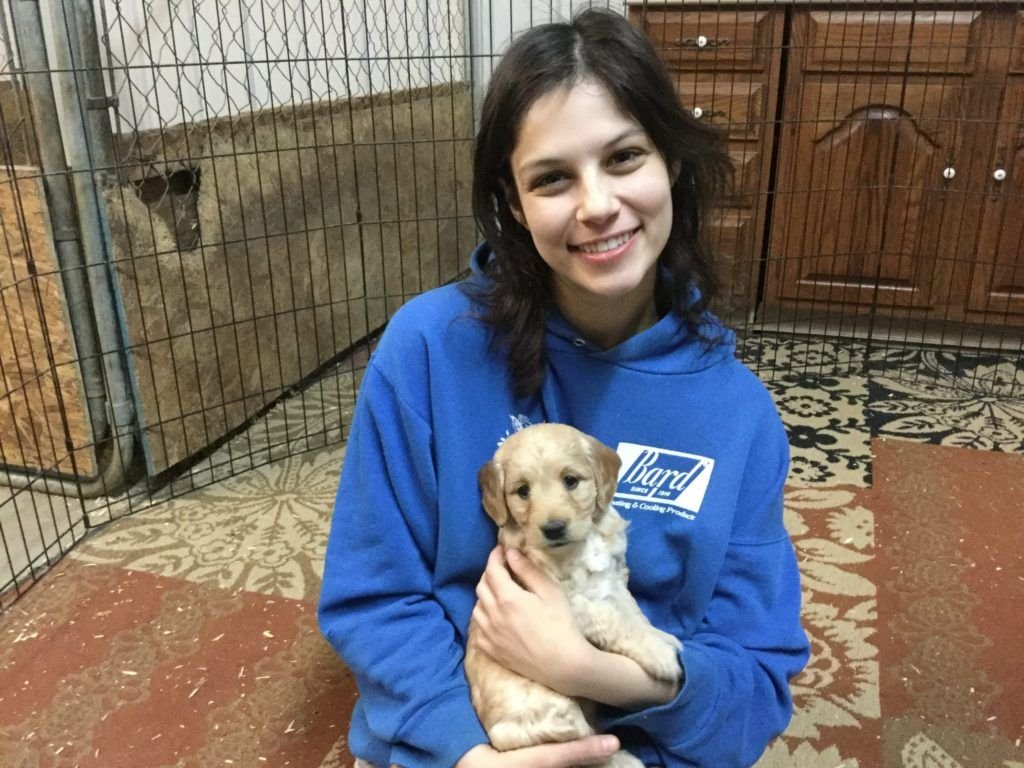

One of the first daunting tasks for any new puppy owner is housetraining. Plenty of people want a cute puppy running around their house, but no one wants a puppy squatting to pee on their living room rug. New puppy owners often ask me questions about housetraining. What is the best way to housetrain my puppy? Should I use pee pads? How do I limit the number of accidents? Should I rub my puppy’s nose in accidents? The last one I’ll answer now: no, you should never rub a puppy’s nose in accidents. This blog post will tell you why, and it will also answer all the other questions I’ve mentioned here. To summarize my opinions on housetraining, the most important elements are positive reinforcement and consistent supervision.
Importance of Doing it Right
Many people don’t realize how important constant vigilance is to the housetraining process. While a few mistakes are bound to happen and aren’t a big deal, each time the puppy goes in the house the formation of a bad habit is taking place. Conversely, each time you reward the puppy for eliminating outside you are creating a powerful positive association.
It is important to use positive reinforcement, and not positive punishment, during housetraining. Positive punishment (such as yelling at the puppy or, even worse, hitting her or rubbing her nose in her elimination) can cause fear and loss of trust. A puppy who has been mistreated in this way may become afraid to eliminate in front of you, which would make her extremely tricky to housetrain. Alternatively, she may begin submissively urinating at your approach, which also complicates the housetraining process. Submissive urination, like other submissive behaviors, is often an attempt to appease someone who is assertive or aggressive towards the dog.
For more information on the pros and cons of different training methods, see My Dog Training Methodology
Important Notes
Adult dogs who are not housebroken are already in the habit of eliminating inside, which may make housetraining a lengthier and more difficult process. Adult dogs are, however, capable of holding their bladder/bowels longer than puppies.
Small breed puppies and dogs can’t go as long without potty breaks as large breeds.
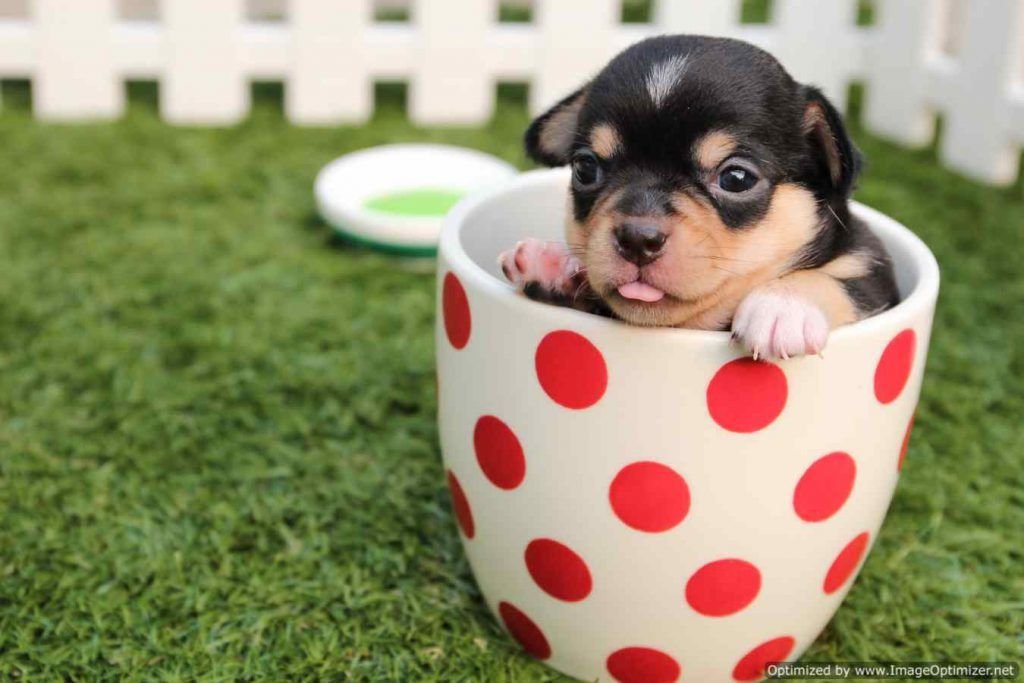
It might be beneficial to restrict your puppy’s water intake during the housetraining process. You may want to take the water away an hour before your puppy will be stuck inside (such as before bed time or before you head to work). Your puppy should always have access to water after meals and after exercise. A puppy is dehydrated if her nose is dry or if the skin on the back of her neck does not spring back quickly when gently pulled.
You should avoid feeding your puppy within an hour of her being stuck inside, because puppies often poop after they eat.
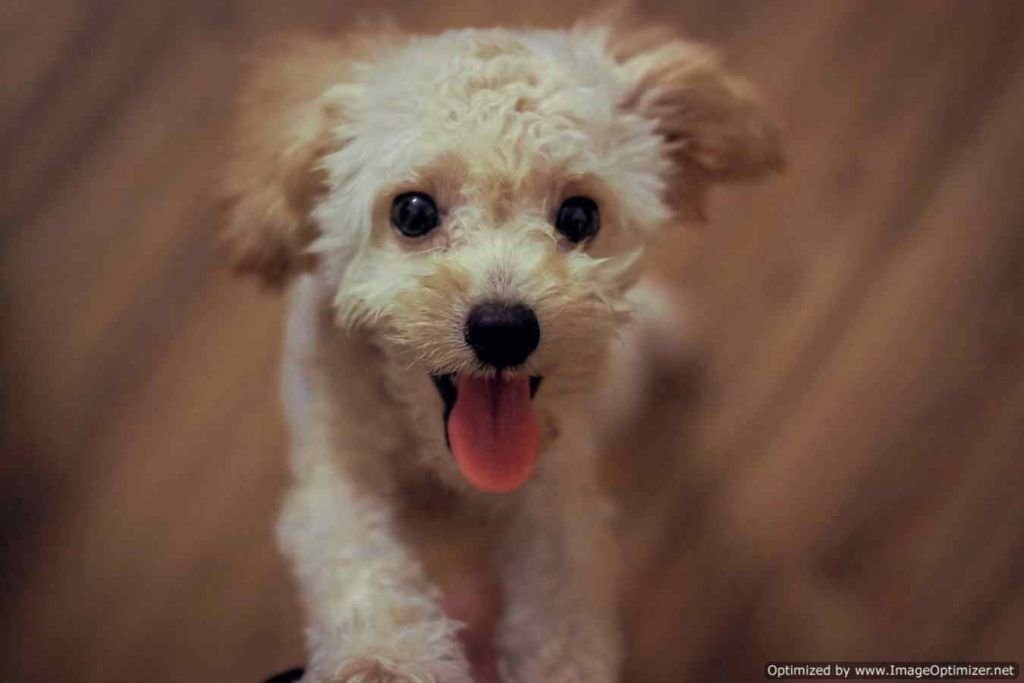
Many puppies lose control of their bladders when they get overly excited. This is not a housetraining issue, but it’s worth mentioning because it’s often misunderstood. If your puppy is exhibiting this behavior, make sure her bladder is empty before introducing her to exciting stimuli whenever possible. It’s also a good idea to expose your puppy to as many new experiences as possible at a young age, even if that means cleaning up more excitement pee. Some dogs that were under-socialized as puppies will show fear to novel stimuli, but many will exhibit over-excitement instead.
Many puppies lose control of their bladders when they get overly excited. This is not a housetraining issue, but it’s worth mentioning because it’s often misunderstood. If your puppy is exhibiting this behavior, make sure her bladder is empty before introducing her to exciting stimuli whenever possible. It’s also a good idea to expose your puppy to as many new experiences as possible at a young age, even if that means cleaning up more excitement pee. Some dogs that were under-socialized as puppies will show fear to novel stimuli, but many will exhibit over-excitement instead.

A dog that has a fenced in yard and has never eliminated while on leash may be resistant to do so when it becomes necessary in the future, so it’s a good idea to practice the behavior early on in the housetraining process.
Housetraining Steps
It is important for your puppy to be in one of three states during housetraining:
- Closely supervised in the house so that you can take her out if she starts to show signs of wanting to eliminate. You can even tether your puppy to you to make this easier.
- Closely supervised outside so you can immediately reward her for eliminating in the right place.
- If you can’t supervise your puppy, the puppy should be confined to a small space (like a crate), because dogs are naturally reluctant to eliminate in a small space where they would be stuck with the mess (the exception is dogs that have been left in small spaces too long and have lost that inhibition).1
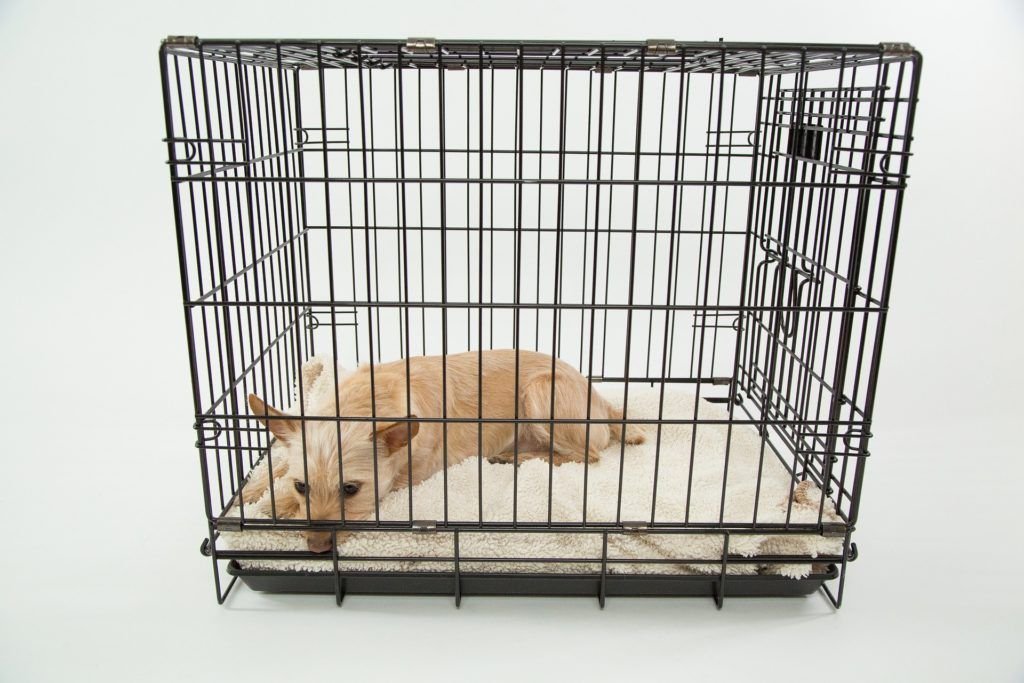
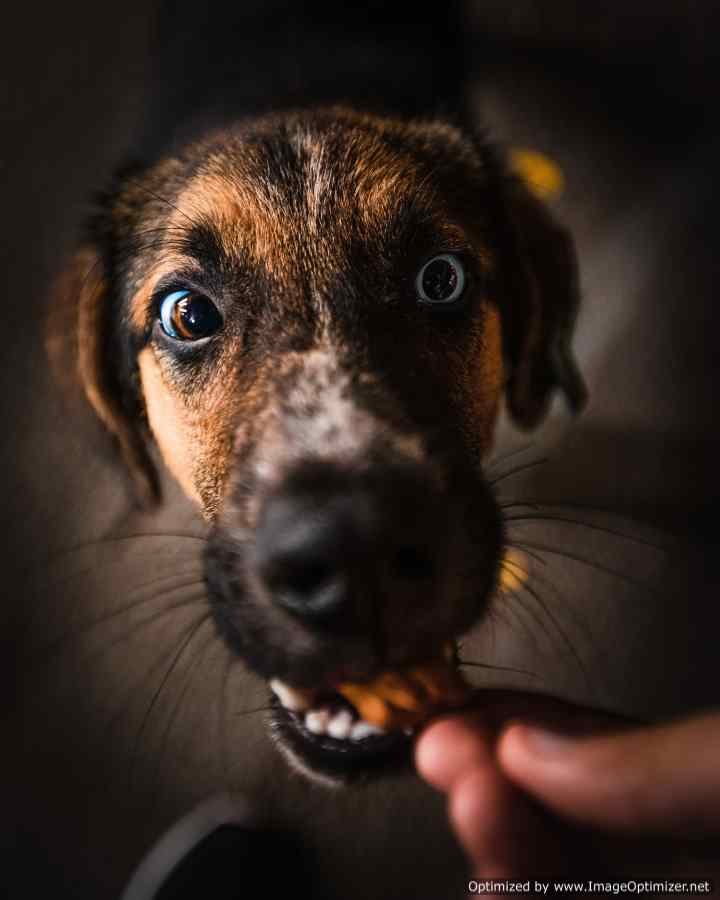
Immediately reward the puppy for eliminating outside with extra special treats and praise. This works best if you reward the puppy every single time she goes outside and offer the reward as soon as the puppy is done (not after she has walked back inside).
You should take the puppy outside very often to maximize the chances of her going in the correct area. Puppies have to eliminate much more often than adult dogs, so you should start with taking the puppy out regularly every half hour until you start to learn her routine and cues. During the night puppies can hold their bladders/bowels a little longer but will still need to be taken out once or twice while they’re very young. You should also take the puppy out any time she shows signs of wanting to eliminate. If you’re paying attention, you will learn your puppy’s specific body language cues over time.
Immediately reward the puppy for eliminating outside with extra special treats and praise. This works best if you reward the puppy every single time she goes outside and offer the reward as soon as the puppy is done (not after she has walked back inside).

You should take the puppy outside very often to maximize the chances of her going in the correct area. Puppies have to eliminate much more often than adult dogs, so you should start with taking the puppy out regularly every half hour until you start to learn her routine and cues. During the night puppies can hold their bladders/bowels a little longer but will still need to be taken out once or twice while they’re very young. You should also take the puppy out any time she shows signs of wanting to eliminate. If you’re paying attention, you will learn your puppy’s specific body language cues over time.
But in general, you should take your puppy out if:
- She just woke up
- She’s whining
- She just finished an activity like chewing or playing
- She’s sniffing the ground, especially if she’s near an area she’s eliminated in before
- She’s pacing or sitting near the door she usually goes out, or looking towards it1
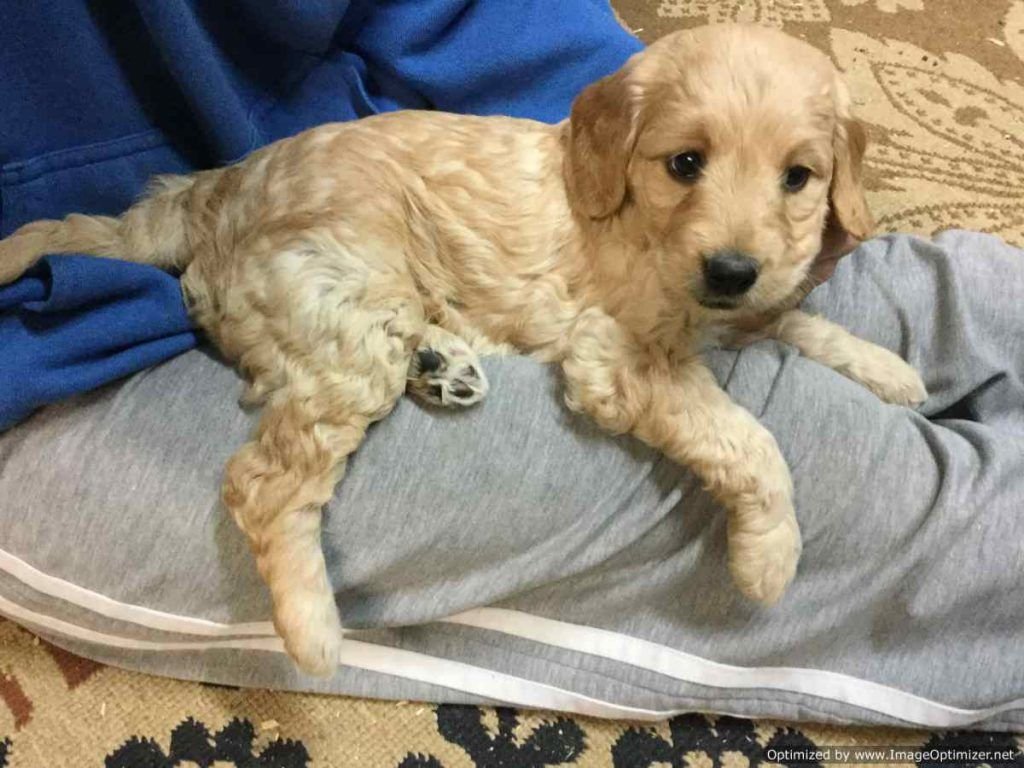
But in general, you should take your puppy out if:
- She just woke up
- She’s whining
- She just finished an activity like chewing or playing
- She’s sniffing the ground, especially if she’s near an area she’s eliminated in before
- She’s pacing or sitting near the door she usually goes out, or looking towards it (London and McConnell 8-9)

If you catch the puppy in the act of eliminating in the house, don’t scold the puppy. Mildly startle the puppy with a hand clap, and if the puppy stops then take her outside and encourage her to finish her elimination. If she doesn’t stop when you attempt to startle her, do not pick her up or move her. Wait for her to finish and then put her elsewhere while you clean up the mess. If you find an elimination after the fact, once again do not scold the puppy. Just clean it up thoroughly and move on.
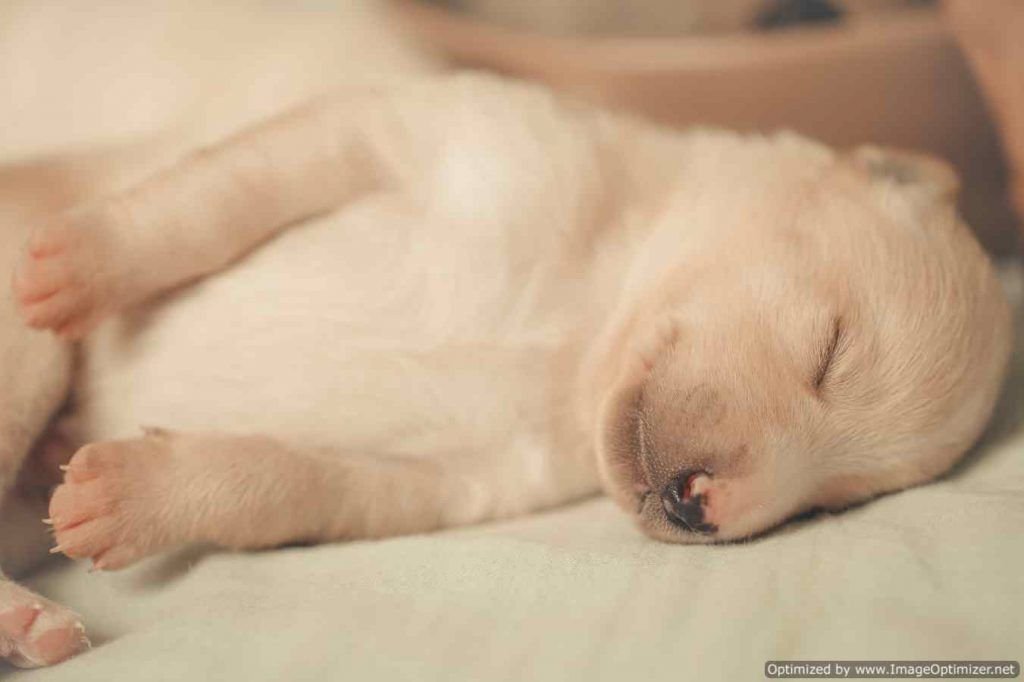
You should clean up eliminations as quickly as possible and out of sight of the puppy so that she doesn’t become more interested in them. It is important to clean up eliminations in the house very thoroughly and with an enzymatic cleaner designed to remove the smell of urine. Just because you don’t smell an odor, doesn’t mean you dog can’t either. Dogs have a much better sense of smell than humans and they use that sense of smell to decide where to eliminate. Dogs are much more likely to eliminate in a spot that smells like urine, whether thats outside or in your living room.

You should clean up eliminations as quickly as possible and out of sight of the puppy so that she doesn’t become more interested in them. It is important to clean up eliminations in the house very thoroughly and with an enzymatic cleaner designed to remove the smell of urine. Just because you don’t smell an odor, doesn’t mean you dog can’t either. Dogs have a much better sense of smell than humans and they use that sense of smell to decide where to eliminate. Dogs are much more likely to eliminate in a spot that smells like urine, whether thats outside or in your living room.
If your puppy is going in the house, you may need to start paying more attention to her body language and/or taking her out more often. With constant vigilance and frequent trips outside you should be able to minimize these occurrences.
If your puppy is eliminating frequently in a room that you don’t spend much time in, she might not be thinking of that room as part of the living area. Dogs are pretty good at learning which areas are living areas and which areas are potty areas, but you and your dog may differ on your definition of “living area.” To fix this, start spending time in the room so that it smells like you. It’s also a good idea to play with the dog in the room, and maybe add a dog bed to the room. And, as always, make sure all traces of urine smell are gone from the room using an enzymatic cleaner.
Potty Verbal Cue
You may want to train your puppy to respond to a potty verbal cue, a word or phrase that cues the puppy to eliminate. Imagine telling your dog “go potty” and having her almost immediately respond virtually every time. You’d never have to stand outside in the cold begging your dog to hurry up and do her business. I trained my dog, Bella, to respond to a potty verbal cue and I still consider it to be one of the most useful of the 20+ commands I have taught her.
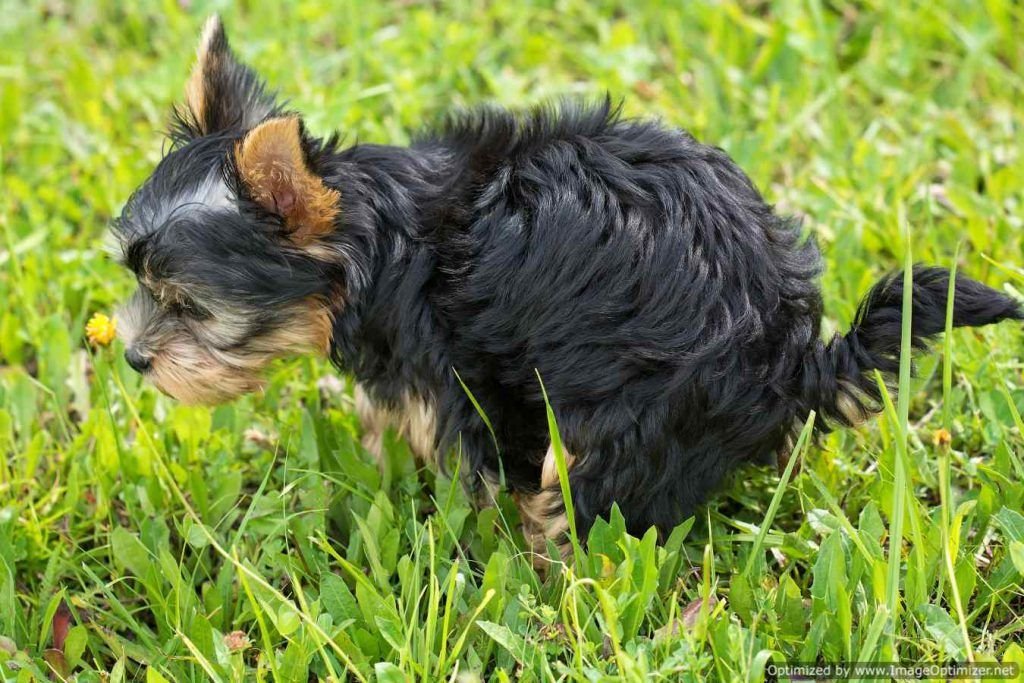
To train a potty verbal cue, watch your dog carefully before she eliminates. Does she have a certain spot she prefers to use? Does she start sniffing in a particular way right before she goes? Once you learn to recognize the signs that your dog is about to eliminate, say “go potty,” or whatever word or phrase you choose, right before she starts to go. Give her a treat when she’s done. If you’re like me, this training will be well worth the effort.
Bell Training
Owners often want to add an extra layer to housetraining: training their dog to alert them when she wants to go out to eliminate. Most commonly, this is accomplished by training the dog to ring a bell that is hung near the door to the outside.
To teach your dog to ring the bell, place the bell in a spot where the puppy is likely to touch it and then give her treats every time she touches the bell. This method of training is called capturing. You are simply waiting for the dog to perform the behavior and then rewarding her for it. You can also lure the dog over to the bell using a treat or prompt her to get close to it using your voice. However you get the dog to ring the bell, follow up bell rings with treats. Once the dog starts ringing the bell frequently, you can begin ringing it right before you open up the door to take the dog out to eliminate. Through this training, the dog will learn that she can cause the bell to ring and that the bell ringing results in the door opening.
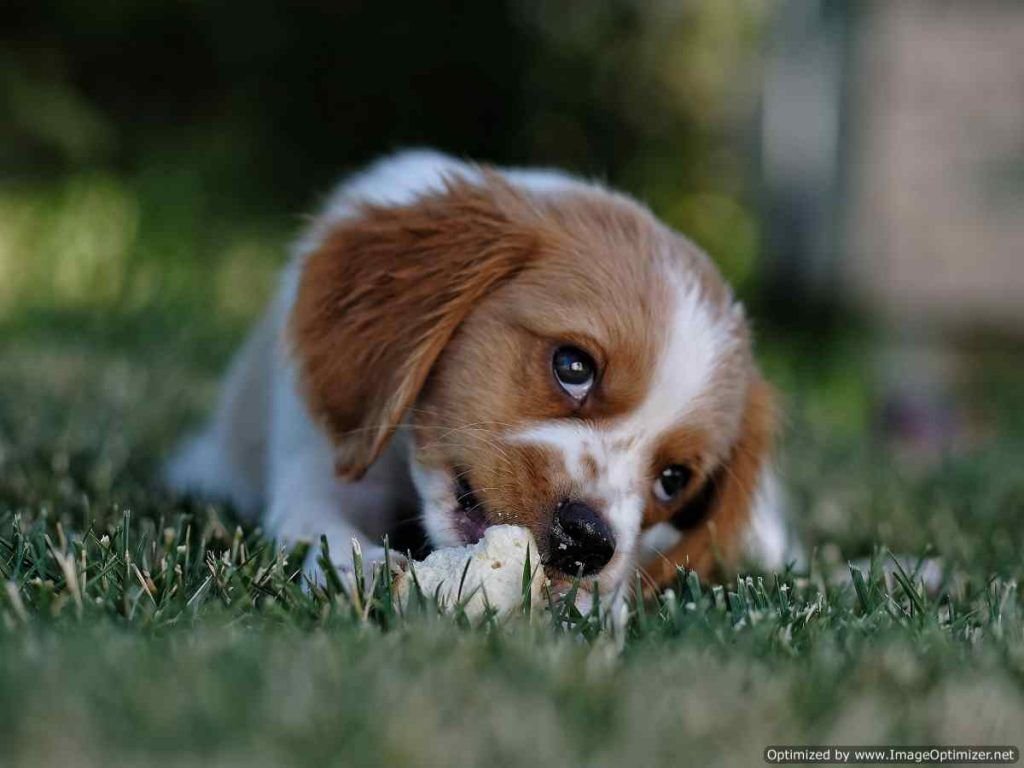
Only ring the bell before taking trips outside for the purpose of elimination, not when you’re going out for a play session. Even if you follow that recommendation, the dog may still use the bell to go outside for more than just elimination. My dog, Bella, for instance, rings the bell constantly when one is available to her. She rings it when she sees a squirrel she wants to chase, when she’s bored and wants a change of scenery, and sometimes it seems like she doesn’t want to go out at all but just wants my attention.
However, Bella is very good at communicating when she needs to go out verbally and with body language. She’s very insistent with her whining and door pawing if she needs to go out. Not all dogs are so communicative, so a bell is be a good option for some. For others, a routine of going outside regularly might be a better choice.
Wee Wee Pads
I do not recommend wee wee pads or similar products to aid in training a dog to eliminate outside. After all, such products train the dog to eliminate INSIDE. The training for wee wee pads is just as effortful as training a dog to eliminate outside. You’re simply trading trips outside for trips to the pad.
I have many times heard people tell me they want to purchase wee wee pads to go in the puppy’s crate because the puppy is eliminating in the crate. Sadly, it’s usually the case that they’re leaving the puppy in the crate too long, often refusing to take her out during the night. Doing so destroys the natural inhibition dogs have towards eliminating in tight spaces, and it sets housetraining back significantly. Puppies cannot hold their bladder/bowels for very long, and it’s a simple fact that you’ll be making many trips outside during the housetraining process. And yes, that includes in the middle of the night.
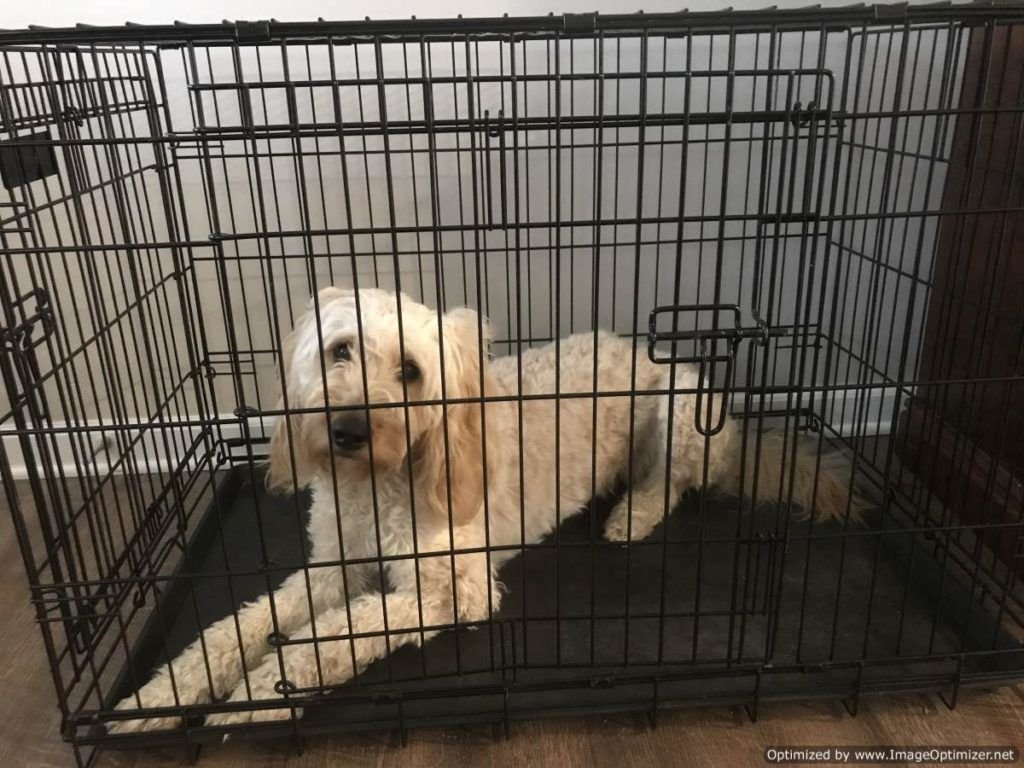
Neglecting the puppy to the point that she is forced to eliminate in the house will have huge negative impacts on housetraining for the rest of the dogs life. Remember, putting in the effort now will pay off for years to come.
If you’d like your dog to eliminate outside exclusively and you’re considering wee wee pads for a temporary way to avoid frequent trips outside, you should consider a board and train program that will housetrain your puppy for you.
However, you may be considering a product like a wee wee pad for a different reason, such as your dog cannot go outside for health reasons (dogs that have had Parvo are at higher risk for getting it again and may need to be quarantined inside until their vaccinations are completed) or trips outside are difficult because of your living situation and you want your dog to be able to eliminate inside.
The training process for wee wee pads is similar to training a dog to eliminate outside. You replace trips outside with trips to the wee wee pad, and reward eliminations that occur on the pad. To train your dog to target the pad consistently, you can begin by enclosing the wee wee pad on three sides, or place it inside a litter box. Then, begin moving the pad around so that the dog learns to target the pad, not the location in your house. That way, the behavior will become generalized and your dog will be able to use the pads in hotel rooms or at a friend’s house.
Conclusion
Housetraining may feel like a daunting task. It seems that no matter how often you take your puppy out or how much you try to watch her, you still find yourself on all fours scrubbing your floor clean. It’s bound to happen occasionally to even the most vigilant puppy owner. Try not to stress out about each incident too much. Above all else, don’t get angry with your puppy. Often, an incident means you need to take the puppy out more often or pay closer attention to her. But it doesn’t mean you need to come down harder. Puppies are innocent, naive creatures who need a benevolent leader to show them how to behave. If you guide your puppy with gentle methods, the experience will be more pleasant for both of you.
Works Cited
- Way To Go! by London and McConnell

